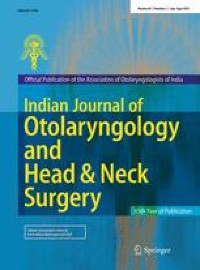Abstract
Cartilage is used as a grafting material for tympanoplasty. The rigidity of the cartilage is the main concern. There are debates regarding slicing the cartilage when it is used as a graft. Therefore, this systematic review and meta-analysis aimed to compare the hearing results of full vs. partial-thickness cartilages in patients undergoing cartilage tympanoplasty. We systematically searched google scholar, PubMed, Cochrane, Ovid, Scopus, and gray literature including the references of the selected studies, and conference abstracts which were published up to 6 May 2020. The search syntax for identifying studies was: ((Cartilage) AND (tympanoplasty) AND (thickness)). The literature search found 1047 articles. After eliminating duplicates, 908 studies remained; from these, we excluded observational studies, reviews, case reports, and non-randomized trials, and 12 studies remained. Finally, only 5 articles were included for analysis. The pooled standardized mean diff erence (SMD) for the post-operative gap was −0.87 95% CI: (−1.66, −0.08) (I2 = 87.1%, p < 0.001). The pooled SMD of the reduction in gap in the full-thickness group was 2.84, 95% CI (1.39–4.3), I2 = 93.2%, p < 0.001). The pooled SMD of the reduction in gap in the partial-thickness group was 4.02, 95% CI (1.97–6.02), I2 = 95.3%, p < 0.001). The pooled results of this systematic review showed that partial-thickness cartilage graft has better hearing outcomes than full-thickness in patients undergoing cartilage tympanoplasty.



No comments:
Post a Comment